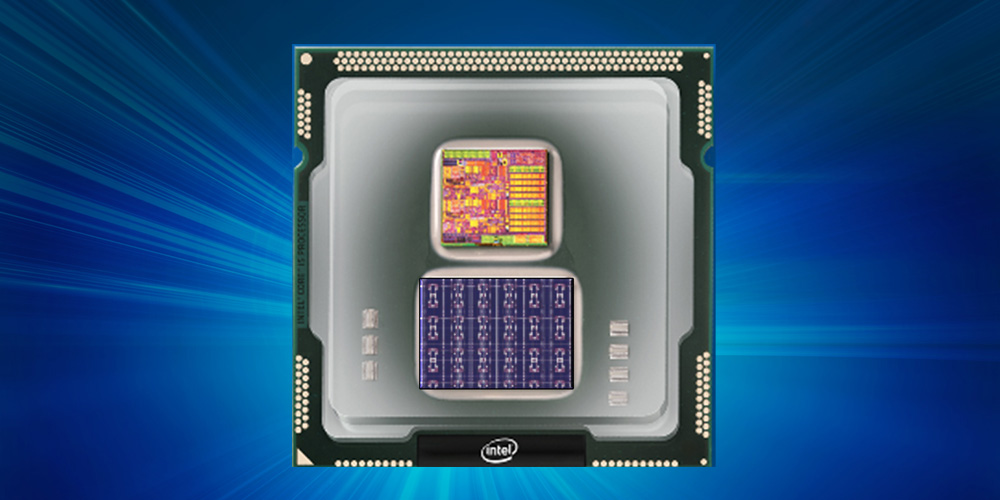
10-1 Happy Holiday in PRC: Intel introduces what it claims is the world’s first self-learning neuromorphic AI chip Loihi; Apple is keen to expand its semiconductor capabilities further; etc.
Chipsets
Intel introduces what it claims is the world’s first self-learning neuromorphic artificial intelligence chip, codenamed Loihi, which it says should facilitate various efforts related to machine learning and general artificial intelligence advancements. (Android Headlines, ZDNet, Intel, Wired, The Inquirer, Sina)
Spreadtrum chairman Leo Li emphasizes to collaborate closely with Intel, and by end of 2017, Intel will have a 3D facial recognition technology that exceeds Apple’s (using Intel 14nm 3D tooling technology). Intel indicates that Chengdu and Dalian factories are entering production, and they will manufacture China’s chipsets using 22nm, 14nm and 10nm technologies, especially for the last 2 technologies are mainly targeting high-end smartphones. (CN Beta, Huanqiu, TechWeb)
Apple is keen to expand its semiconductor capabilities further. They say the company is interested in building core processors for notebooks, modem chips for iPhones, and a chip that integrates touch, fingerprint and display driver functions. Apple is reportedly trying to cut its dependence on Intel when it comes to notebook chips and instead build those using ARM architecture. (Apple Insider, Asia Nikkei, article pt.1, pt.2, Sina, Sohu)
Touch Display
Hon Hai Group has started construction of Gen-10.5 panel factory in Guangzhou, China in early 2017. WitsView indicates that the production period would be delayed from 2019 to 2020. However, the subsidy panel maker SDP who manages the fab denies the news and claim the production will begin in 2019. (Laoyaoba, EE World, UDN, IEK)
Since 2015, Korean vendors including Samsung Display, LG Display and Japanese vendor Japan Display have reduced small-to-mid size TFT LCD production and shifting production for OLED. Since 2016, the global small-to-mid size TFT LCD shipments will decline year by year, DIGITIMES Research estimates that by 2022 it will be reduced to 1.8B units, as compared to 2.4B units in 2018, with the annual compound growth rate (CAGR) of -6.9%. (Yahoo, CNYES, Laoyaoba, Digitimes, press)
Camera
Sony published a brand new patent (JP-A-2017-174936), which describes 3 different “Foveon” alike sensors. This kind of sensor does not use the classic RGB pixel layout. (Sony Alpha Rumors, Laoyaoba, Hi Low Notes, Japan Patents)
Memory
SK Hynix said its board has approved its participation in a Bain Capital-led consortium that plans to purchase Toshiba’s memory chip unit for JPY2T (USD17.7B). SK Hynix will invest JPY395B, part of which will be in convertible bonds that could allow it to take an equity stake of up to 15% in the future. (Laoyaoba, Reuters)
Biometrics
Counterpoint Research estimates that more than 1B smartphones equipped with fingerprint scanners will be shipped in 2018, as fingerprint sensors will become the standard solution for authentication. (Android Headlines, Counterpoint Research, press, East Day, Tencent)
Smartphones
HMD Global said all its current Nokia smartphones will be upgraded to Android P soon after Google releases it in 2018. (Facebook, Phone Arena, My Zaker, iFeng)
Apple has allegedly purchased early-phase startup Regaind, a company in the midst of developing a new algorithm for analyzing the content and quality of photos. (CN Beta, TechCrunch, Apple Insider)
Payment, remittance and customer analytics are growing fintech areas in which banks and fintech startups can collaborate, as banks have customer skills and data, while startups offer innovative services and are dynamic, said Michael Araneta, associate vice-president of IDC Financial Insights, a finance research unit of IDC. Behaviour analytics, blockchain, cloud adoption and consumer mobile payments are the top technological trends affecting financial institutions in 2017. (Laoyaoba, Bangkok Post)
Vernee Mix 2 is announced – 6” FHD+ 2160×1080 display, MediaTek Helio P25 processor, rear dual 13MP-13MP + front 8MP cameras, 4 / 6GB RAM, 64GB ROM, Android 7.0, 4200mAh battery, USD229. (Gizmo China, Giz China, Vernee, Android Headlines)
Huawei Nova 2i (international version of Maimang 6) is launched – 5.9” FHD+ 2160×1080 display, Huawei Kirin 659 processor, rear dual 16MP-2MP + front dual 13MP-2MP cameras, 4GB RAM, 64GB storage, 3340mAh battery. (GSM Arena, Vmall)
Wearables
GoPro officially launches Fusion 360º camera, priced at GBP699. It can shoot video in 5.2K at 30fps, or 3K resolution at 60fps, or take 18MP still photos, also in 360º. (Pocket-Lint, The Verge, Forbes, iFeng, From Geek)
GoPro Hero 6 Black is launched, which can shoot 4K resolution video at 60fps, and it can do 1080p high-definition video at 240fps. It is priced at USD499. (VentureBeat, The Verge, CNET, TechWeb, ZOL)
Huawei EnVizion 360 Camera is an add-on component for smartphones. The device features two 13MP camera sensors, one on each side that have 360º viewing angle. The resolution of the photos is 5326×2688 pixels, while the video can be recorded at 1920×960 pixels @30fps. (Gizmo China, Huawei Blog, Sina)
Internet of Things
The Halo Home Collection is comprised of 2 models – Halo Classic and Halo Vantage. Both models coming complete with gigantic battery lives, smart image detection, built in alarm with 2-way talk and full mobile connectivity. (CN Beta, Geeky Gadgets, Yanko Design)
According to a new IDC forecast, retailers and banks will lead the charge this year, investing USD1.74B and USD1.72B on cognitive and AI technologies, respectively. Collectively, the world’s businesses will pour USD57.6B into cognitive and AI systems market in 2021, which is poised to expand at a compound annual growth rate of just over 50% during 2016-2021. The market is expected to hit USD12B in 2017, a 59.1% gain from 2016. (Laoyaoba, Datamation, Business Wire, IDC, IT Web)
LG Electronics will renovate its home appliance plant in Changwon, South Gyeongsang Province, into an eco-friendly smart factory. It will invest KRW600B in this project through 2022. LG said the smart plant will have advanced manufacturing systems based on the core technologies of the Fourth Industrial Revolution such as internet of things (IoT), big data analysis and artificial intelligence (AI). As a result, the firm hopes that it will be able to quickly respond to changes of demand in the global market. (Laoyaoba, Korea Times)
















